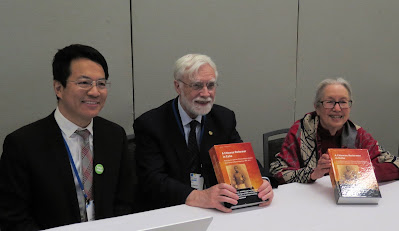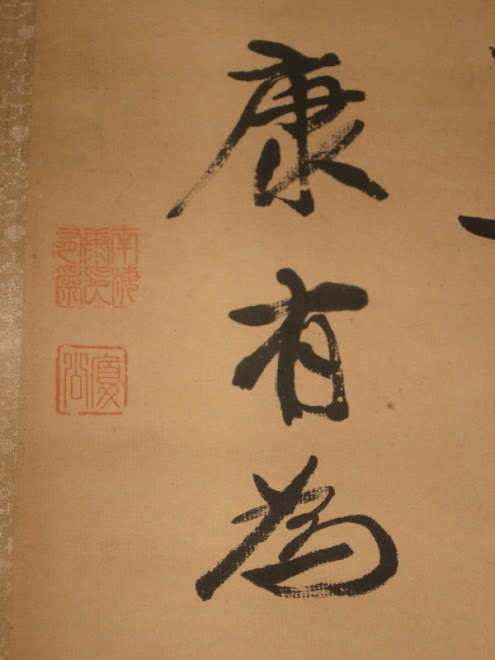New Books Network Interview with Robert L. Worden and Jane Leung Larson by Li-Ping Chen
Northwest China Council and First Saturday PDX, at Reed College, Portland, Oregon: A Chinese Reformer in America with Jane Leung Larson
Saturday, March 7, 9:30 to 11:00 AM, Reed College, Biology Building B19; 11:30 no-host lunch; registration advised: https://lp.constantcontactpages.com/ev/reg/v7bvw67
UCLA East Asian Library Book Talk with Jane Leung Larson
December 4, 2025, 1:00 to 2:30 PM, Charles E. Young Research Library, Presentation Room 11348
Jane Leung Larson introduced A Chinese Reformer in Exile and how the Tom Leung papers expanded our knowledge of Kang Youwei's travels and activities in the United States. The UCLA Asian Library holds the papers, which were donated by Louise Leung Larson in the 1980s. UCLA China historian Andrea Goldman will comment on how she has used the papers as a teaching tool. A PDF of the PowerPoint presentation with links to the book and to the UCLA documents described can be downloaded here.
MOCA TALKS – A Chinese Reformer in Exile: Kang Youwei and the Chinese Empire Reform Association in North America with Robert L. Worden and Jane Leung Larson
October 30, 2025, 7 PM, Museum of Chinese in America, 215 Centre St., New York City
Robert Worden and Jane Leung Larson are in conversation with Evans Chan, whose films and opera on Kang Youwei brought them together to write A Chinese Reformer in Exile. The YouTube podcast is here.



